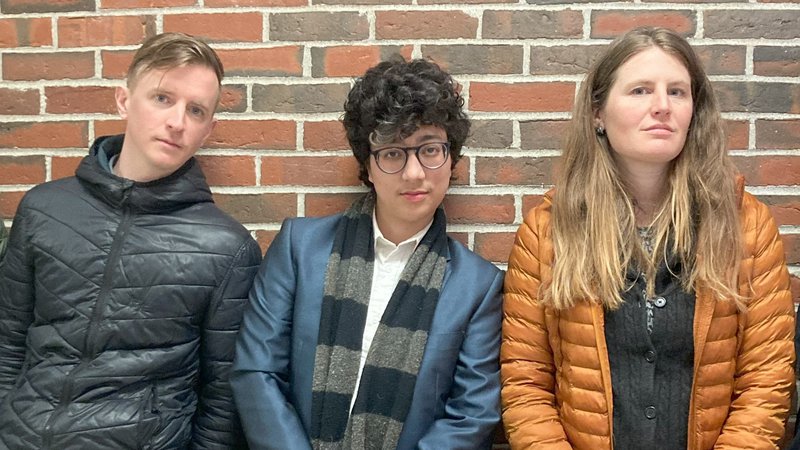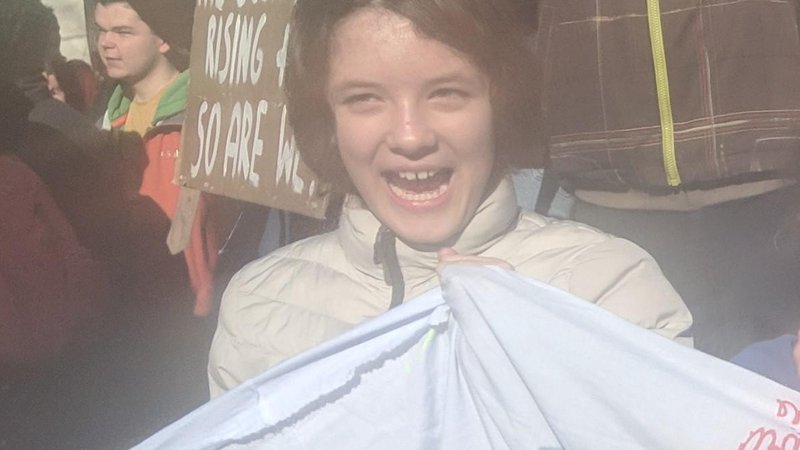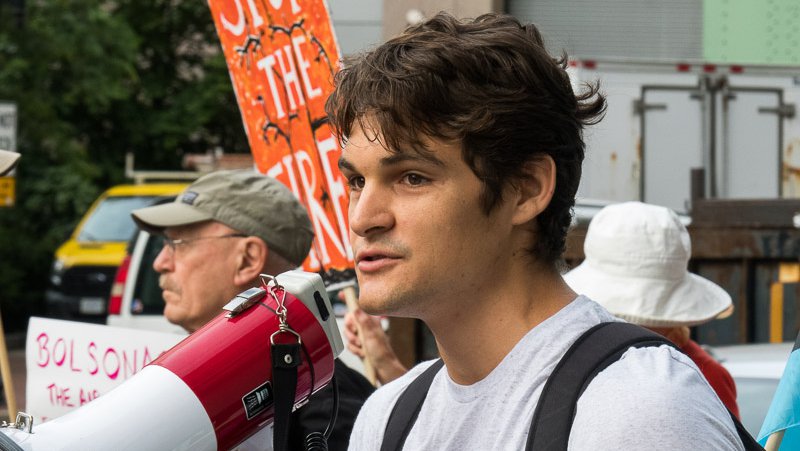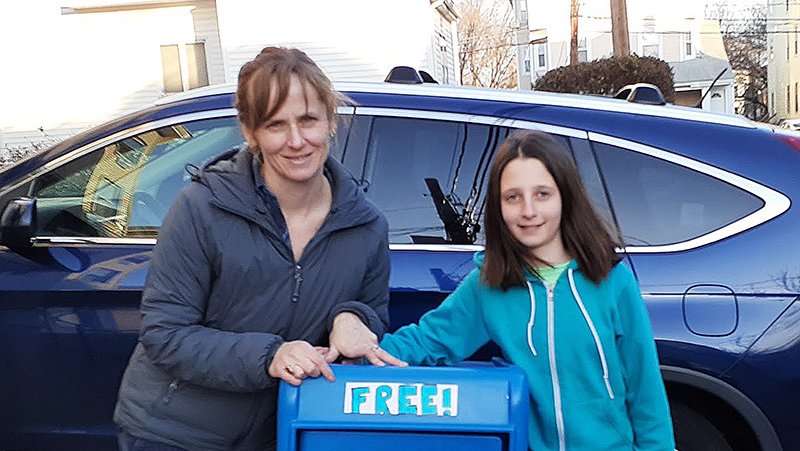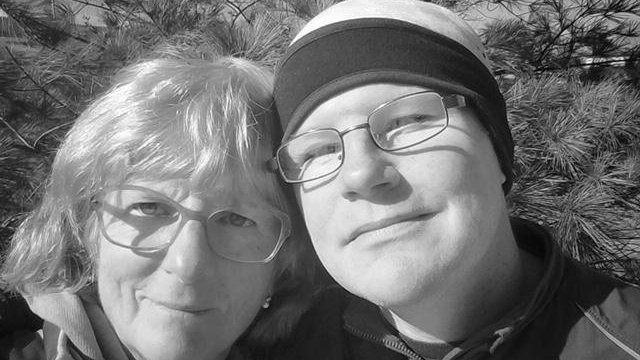
Meet Jason Rudokas: The Power of Art in Facing the Climate Crisis
The Importance of Art in Facing the Climate Crisis: Meet Jason Rudokas
By Kaylen Sanders
Jason grew up immersed in music. He fondly remembers his grandmother teaching him how to play the piano, "just a little organ where [he'd] play silly chords." As young as four or five years old, he learned to read music, eventually branching out to the guitar in his teen years. Thinking artistically is nothing new to him. Jason's background as a policy analyst on the frontlines of developing climate and air quality modeling frameworks for the Northeast nurtured a sense of moral responsibility to illuminate the the climate crisis and to help build better global structures that might save lives. This past year he connected these threads of his life by getting involved with the Extinction Rebellion Boston art working group and directing his creative energy towards climate activism.
"When I got into the art working group and was able to participate in art builds, print-making, and making structures, I was like wow, this is awesome, and I started kind of unlocking something, a mental space that was already in me," Jason explains. After getting involved with Extinction Rebellion in September 2019 around the time of the Flood the Seaport protest, Jason grew increasingly committed and is now the co-coordinator of the art working group. He remains involved with other working groups, such as infrastructure because he enjoys helping to build organizing tools that draw people in and encourages collaboration. Yet he describes the art collective as the group he is the most intelectually and emotionally engaged with.
Currently, the art working group aims to decentralize art-making. In January, the group held an event at Boston's Puppet Free Library, where they set up block-printing and screen-printing stations for a day of mass printmaking. Over the course of several hours, Jason and other members of the art working group taught a multitude of people how to make prints. Attendees crafted tons of patches with Extinction Rebellion symbols - prints are an awesome way of spreading the word about climate activism. Today Jason even has a block-printing press in his basement where he makes his own blocks every now and then. It's not just about the day of printmaking. It's about the knowledge that everyone brings home with them as part of their personal toolkits for fostering change.
Decentralization has recently taken on the form of an art saturation campaign. Saturdays have been filled with online art workshops. One workshop involved making paper boats to illuminate broader environmental and social messages around themes like: "Our Future is to Big to Fail" and "We are not all in the Same Boat, but We are in the Same Storm". The art working group also developed a digital resource guide with graphic designs and instructions on how to make wheat paste before guiding participants through a live tutorial. Additional art workshops have encompassed topics like eco-friendly chalks and poster design. Even though gathering in-person is limited at the moment, activists still have the opportunity to go out and display their art around the city individually. In fact, hundreds of art pieces have already made their mark around town, and Jason is "wicked excited" to watch the art accumulate throughout the summer.
For Jason, art is not only a tool for raising awareness about the climate crisis but also a symbolic manifestation of what it can look like to build a better, more just and sustainable society. As a collaborative process, art strengthens social bonds and facilitates open sharing of ideas, while adding a tangible element to the often amorphous idea of reform. "You make something concrete and beautiful, and it's kind of like a parallel for what we need to do for the world," says Jason.
Naturally, the ever-present threat of the coronavirus has made organizing more complicated. Scaling a movement virtually and maintaining focus in the midst of crisis presents novel challenges, but art offers an innovative refuge from the deluge of tragedy, a vision of something beyond the now. "The process of making art, like building something, helps me to get through this," notes Jason. Perhaps it will help spur us to design the world we need to see.
Related Stories:
Featured:
-
The third annual Week of Rebellion is full of opportunities for celebration and action!
-
Our government had the opportunity to finally turn our state into a "climate leader," and they decided yet again to prioritize profits and political posturing over the well-being of residents.
-
Prominent climate scientists and activists demand immediate climate action in the United States.
-
Stop the Fossil Fuel Industry, Now: List of events for Extinction Rebellion Boston's September week of rebellion
-
A compilation of books, movies, articles, and ways to take action to protect Black lives
-
Nadia Colburn, PhD and member of Extinction Rebellion Media team, discusses how to talk about the climate and ecological crisis with family and friends.
Upcoming Events:
-
Sun Jul 20th @ 4 p.m.
-
Fri Jul 25th @ 6 p.m.
-
Sun Jul 27th @ 1 p.m.
